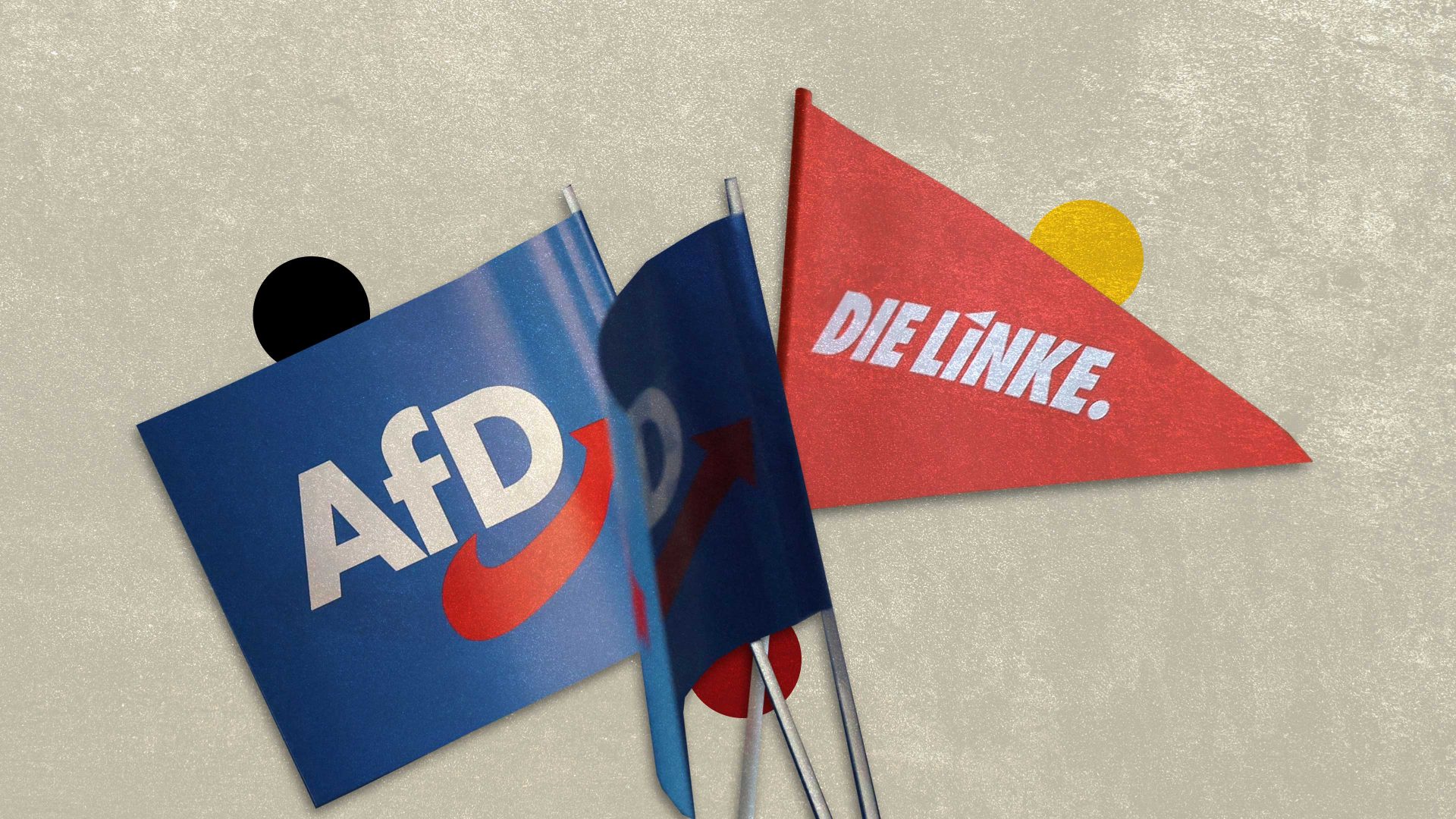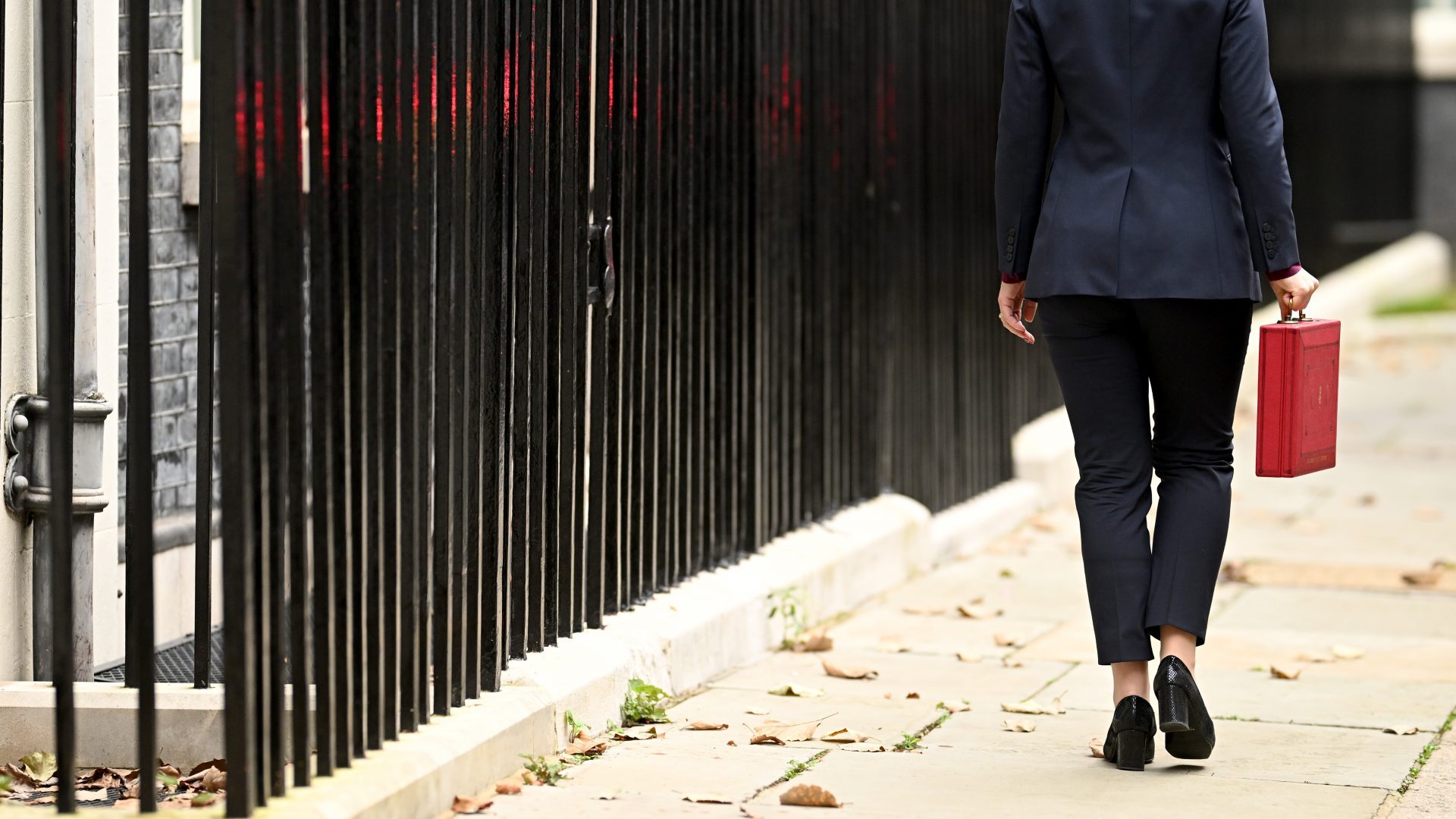Just before Halloween, a German court decided that, nein – cobwebs, pumpkins, monsters and witch dolls do not violate the preservation order of a historic building.
The man who had filed a complaint didn’t even live in the Teutoburgia Siedlung in Herne – a former mining settlement in the Ruhr region, protected as a site of historic interest – whose residents apparently enjoy decorating their homes for Halloween.
You might think that a country with time to debate artificial spider webs has run out of real problems. Sadly, the opposite is true. Increasingly, the old centrist parties can no longer form majorities. If the polls do not change significantly within the next 10 months, this could be the case in Saxony-Anhalt and Mecklenburg-Western Pomerania: meaning that after next September’s elections, no law could pass without support from either the far right AfD or the far left Die Linke.
Many still treat this as an east German problem. It isn’t. Across Europe, parties once considered fringe are thriving, and it’s happening in west Germany, too. Even now, mainstream parties are already forced to work with the AfD in town councils if they want a new bus stop or a school roof repaired.
Two Bundesländer have been fully immersed in this reality since 2024.
One is Saxony. The CDU (31.9%, 41 seats) came out strongest, but with AfD (30.6%, 40 seats) close behind, the remaining parties only have between six and 15 seats. The CDU and SPD (10 seats) have formed a minority government but are 10 votes short, so they need support from either the BSW (hard left, anti-immigration Russophiles), the Greens or Die Linke.
The other no-majority case is Thuringia – which at least has a near-majority of CDU (23.6%), BSW (15.8%) and SPD (6.1%). Together, the three parties have 44 seats – as do the election winner AfD (32.8%) and Die Linke (13.1%) – which means the government cannot be outvoted.
But to do something, they still need help from Die Linke – unless they want to use the AfD as a fallback. Thuringia has experience of this. Its previous red-red-green coalition was also short of a majority and relied on the CDU for support. Yet even with that experience, things remain… complicated.
Quick reminder: the CDU rules out working with AfD and Die Linke on state and federal level. Their “incompatibility decision” of 2018 bans “coalitions and similar forms of cooperation”. However, even the chancellor, Friedrich Merz, has accepted far left votes when convenient. So in Thuringia, the left and the CDU seem to have opted for “let’s-not-call-it-cooperation” cooperation.
What have we learned from these experiments in minority rule so far?
Obviously, majorities have to be organised with the opposition. Saxony and Thuringia have set up mechanisms to get everyone talking. Draft bills are circulated to all parliamentary groups – except the AfD – which can suggest changes before talks begin.
The upside: everyone must be more constructive. You can’t just reject a proposal to score headlines, you have to do the homework.
The downsides: it’s slow. Nothing is agreed until everything is agreed with everyone. And the more parties involved, the pricier the compromise – because the Greens or Die Linke tend to demand extra millions for social spending before signing off. That’s the incentive for opposition parties: to gain influence despite losing votes.
Unsurprisingly, however, these arrangements breed jealousy and suspicion: who gets more quality time or favourable treatment? Who feels a lack of appreciation? Which, again, takes time to resolve.
But the real danger is that the public image of the ruling non-majority could turn into one of endless horse-trading and the government giving in. The AfD has already started campaigning on the claim that they’re the only true opposition to a “left wing agenda under CDU leadership”.
For now, the fragile alliances in Saxony and Thuringia are held together mainly by one shared goal: keeping the AfD out of government.
Berlin could help by showing a bit more sensitivity. Just days after the Unity Day celebrations on October 3, the federal government scrapped a project for a new federal research agency – with a €700m (£614m) budget – that the last government had planned to set up in Thuringia’s capital, Erfurt.
For many, not just in the east, that sort of broken promise is exactly what drives voters away from the political centre.




